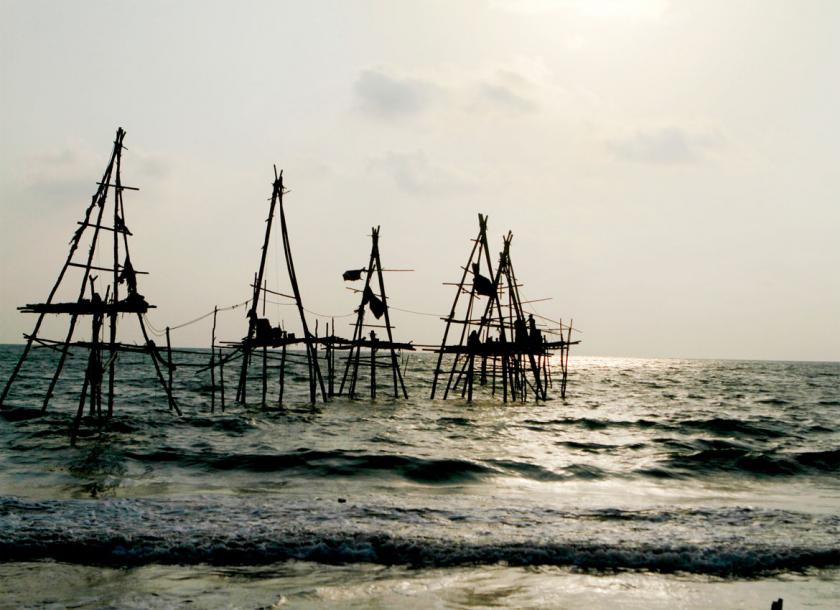Myanmar and China are on the cusp of signing a framework agreement on the development of Kyaukphyu Special Economic Zone (SEZ) in Rakhine State, U Than Myint, Minister of Commerce and chair of the Myanmar SEZ Central Committee, told The Myanmar Times.
The agreement, which is expected to be signed before the end of the year, will see the Chinese taking up a 70 percent stake in a strategic deep sea port at the SEZ. The remaining 30pc will be taken up by the Myanmar government and local public firms, U Than Myint said.
The Chinese have also agreed to new arrangements that will help Myanmar lighten its financial burden as it takes on a larger stake in the project. Construction of the port will commence after the terms are finalised and the framework agreement has been signed.
The development comes after months of difficult negotiations between China state investment vehicle CITIC Group and the NLD-government to reduce the Chinese consortium’s stake in the port from 85pc to 70pc. Under the previous government, CITIC had won the original tender to build the port based on an 85:15 ratio.
A draft framework agreement on the new ownership structure and port development plan was submitted to the SEZ Central Committee in August, after U Set Aung, deputy ministry of planning and finance, was appointed as chair of the Kyaukphyu SEZ Management Committee.
New terms
According to confidential information received by The Myanmar Times, the Kyaukphyu SEZ Management Committee will incorporate a local company and capitalise it through grants of leasehold interest on land earmarked for the project and concessions valued at US$300 million in total.
CITIC will acquire 70pc of the shares of the company at $210 million, while the management committee will sell shares to raise the remaining 30pc from the government and a separate government designated entity (GDE).
The land lease period for each phase of development is 50 years from the commencement of the project and is extendable for 25 years in accordance with the law.
The new company as well as CITIC will not be liable to pay royalties or any other fees of a similar nature for the concession and lease of the project land, whether for the benefit of the SEZ, Myanmar Port Authority (MPA) or any other Myanmar authority. The MPA will undertake all obligations associated with the operation of the port upon completion.
Development of the deep sea port will take place in four stages as originally planned, but the first phase has been scaled down and is now expected to cost $1.3 billion, according to U Khin Maung Cho, Minister of Industry. This will involve construction of a terminal with the capacity for 2-3 vessels.
Under the original agreement, two other terminals were slated to be built in Made Island and Ramree Island. The original estimated cost of development for the entire project had been $7.2 billion, with the first phase expected to cost $1.6 billion.
Now, the Myanmar authorities say they will monitor traffic at the first terminal for a period of two years before a decision on further expansion is made. “Construction will continue only if the first state is profitable and there is demand from the shipping lines for more facilities,” said U Khin Maung Cho.
Avoiding a debt trap
The decision to renegotiate the deal and avoid excessive debt comes after reviewing a similar project: the Hambantota Port in Sri Lanka. After borrowing up to $1 billion from China to build the port, Sri Lanka was forced to hand over rights to operate the facility to the Chinese for 99 years when it could not repay the loan.
While scaling down the Kyaukphyu project will lighten its debt load, Myanmar may still need to borrow to finance its share of the project. According to estimates and scenarios by the Chinese when the original agreement was signed, Myanmar would need to cough up as much as $900 million to develop the port should its stake in the project rise to 30pc.
Construction of the Kyaukphyu port, excluding the initial capitalisation, will be funded by debt and equity at a ratio of 70:30, respectively. “There will be some debt required in port construction but we will negotiate to get a loan with lowest interest rate possible for the benefit of the Myanmar people,” said U Than Myint, adding that the government is also seeking loans from other nations besides China. Details of all lenders involved will be included in the finalised framework agreement.
The Myanmar Times understands that the total equity commitment of CITIC for the first phase is expected to be $273 million. On the Myanmar side, which includes Kyaukphyu SEZ Management Committee and the GDE, the amount is expected to be $117 million in total.
U Aung Soe, secretary of the Myanmar SEZ Central Committee, said details of the framework are still subject to change at this point and that an announcement will be made once the agreement has been finalised and approved, after which work on the port can begin.
Meanwhile, an environmental impact assessment, social impact assessment and preliminary geological and topographical surveys for the SEZ will be carried out at the earliest time possible.
The Kyaukphyu port is a key component in China’s Belt and Road Initiative, which will give the Chinese substantial control over the region’s trading routes. This month, Myanmar and China signed an MOU to cooperate on the China-Myanmar Economic Corridor, which covers a highway project from China’s Yunnan Province to Kyaukphyu via Mandalay.






















